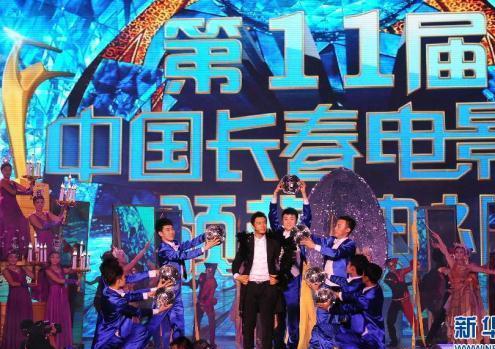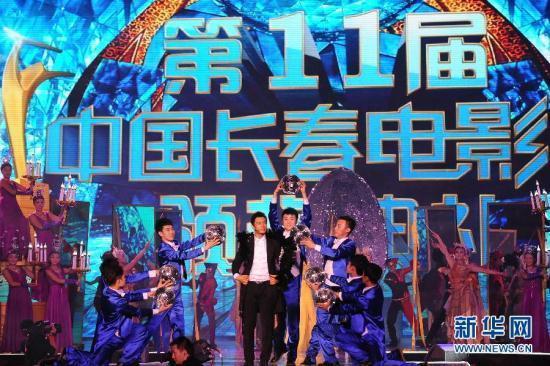Behind Changchun Films

 0 Comment(s)
0 Comment(s) Print
Print E-mail CNTV, August 29, 2012
E-mail CNTV, August 29, 2012
The 11th China Changchun Film Festival may have ended over the weekend. But we now have the chance to go behind the scene to its founder and organizer, Changchun Film Group Corporation.
Formerly known as Changchun Film Studio, the state-owned studio had a hard time transitioning to a corporate structure, but managed to survive in the market after years' effort.
The Changchun Film Studio was dubbed "the cradle of modern China's movie industry". The country's first feature-length film, "Bridge" was produced here, and so were the first batch of non-propagandistic commercial hits in the 1970's.
Guan Hu, Director said, "My mother is one of the earliest employees of Changchun Film Studio. Although I wasn't born here, it feels like home to me. It's steeped with all of my first memories about films, and film making."
|
In Changchun, the capital city in northeast China's Jilin Province, the China Changchun Film Festival has wrapped up with a high-profile gala. |
But with the country's marketization processed in full swing in the 1990's, film talents swarmed to booming cities for privately-invested projects with promises of more funding and room for creativity. This left state-owned studios to their own devices.
Having suffered profit losses for six years in a row, Changchun Film Studio became the first studio to be restructured from an entirely government-funded institution to a corporate one. Absorbing independent film talents and social investments, the group set up 16 subsidiary companies. Modelling after Hollywood's Universal Studios, China's first movie theme park was opened in 2004, integrating film entertainment with local tourism.
Changchun Film Festival was also undergoing changes. Launched in 1992 by the local government and Changchun Film Studio, the festival keeps expanding its vision to include a greater range of Chinese-language movies, no matter their genre, and whether they're made by individuals, private companies or state-owned studios.
Wang Quan'An, Director said, "There's so much emotions attached to this studio. People stuck together to get through the hardest times... Because we wouldn't let such a great film studio disappear. The revival of the studio also reflected the change of movie audience's aesthetic taste. "
The post-reform masterpieces include Guan Hu's "The Cow", a black comedy that has won praises in several international film festivals... as well as 2011's box office hit, "China 1911", paying tribute to the centenary of the Xinhai Revolution. War pictures and rural-themed movies remain as their most competitive field, while new types of movies are being developed to suit movie fans, from historical epics to potential animation projects.
Mu Fangzhou, Changchun said, "It may not be the largest film festival in China, but in the past twenty years, Changchun Film Festival has grown as a platform especially showcasing Chinese language films. hence witnessing the development of modern China's movie scene.







Go to Forum >>0 Comment(s)